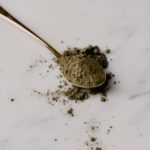Learn some of the best ways to prepare kratom from the Mitragyna Barista series.
What is kratom used for? Explore this complete guide about strains, effects and dosage of kratom.
Interested in finding a reputable kratom store online? Read more about buying kratom in Europe.
Join the global movement for the free and fair access to kratom.
Recent articles and news
Kratom - overview
Mitragyna speciosa (ketum, kratom or kratum, Thai: กระท่อม) is a tropical deciduous and evergreen tree in the coffee family (Rubiaceae), native to Southeast Asia, Indochina and Malesia floristic regions. Its leaves are used for medicinal properties.
M. speciosa is indigenous to Thailand and, despite growing naturally in the country, has been outlawed for 70 years and was originally banned because it was reducing the Thai government’s tax revenue from opium distribution.
Join the discussion about kratom in Europe. Find valuable tips and tricks from inside the country!
Spain
Spain’s vibrant culture and stunning beaches go perfectly with kratom culture. Kratom is growing in popularity in Spain and is sold legally in shops throughout the Iberian country.
Germany
Germany sits at the heart of Europe and hosts a dynamic and progressive culture. There is often confusion about the legality of kratom in the country, but it is fully legal.
France
France used to be one of the most forward-thinking countries in the world. Following a conservative wave, kratom was defined as a psychotropic substance in 2020.
Portugal
Portugal decriminalized the personal possession of drugs in 2001. Kratom is listed as a psychoactive substance: sale is not allowed, and possession is non-criminalized.
Netherlands
The Netherlands is known for its tolerant drug policy. This has attracted a small but dedicated following of kratom lovers as well as vendors based in this stunning country.
Rest of Europe
Check here the largest database on the internet about the legal status of kratom as of 2020 in each of the European countries and stay updated on new regulations and developments.
Countries with prohibited or questionable legality
Unfortunately, kratom has been banned in some countries. While there has been great strides towards accepting this plant, there is still work to be done! Read our list below for countries you should not travel to or be very careful with kratom.
In 2005, the Australian Drug and Poisons Schedule Committee recommended that Kratom & Mitragynine be grouped along with other schedule 9 substances. This imposed a complete ban on the use of Kratom. This law implied that the legal status of Kratom in Australia is that of a narcotic drug, the use of which is illegal.
Through this legislation, Australia has expressly prohibited the purchase, sale and even possession of Kratom products and Mitragynine. However this law doesn’t prohibit Kratom for research purposes. With the passing of this law, Australia has raised increased pressure on New Zealand to adopt a similar stance on kratom.
Israel moved to make both Mitragynine and Hydroxymitragynine illegal.
Kratom is considered illegal in Malaysia under Section 30 (3) Poisons Act 1952. However, it is reported that possession in Malaysia isn’t a major issue.
Bringing kratom into Malaysia is could have you regarded as a drug smuggler. Quantities above a certain level are harshly punished.
Kratom is now illegal in Myanmar and Burma. It cannot be grown or purchased.
South Korea has made Kratom an illegal substance. It is heavily regulated with harsh penalties imposed against people who attempt importation and possession.
Medical use of Kratom and marijuana are legal in Thailand. On Christmas day 2019, new legislation was passed to make both substances legal for medical use. Recreational use of both is still illegal and punishable by death. Kratom has been illegal since 1943. In 1979, kratom was reclassified as a Type 5 narcotic (the least restrictive and punitive level). It was included in the Thai Narcotics Act along with cannabis and mushrooms, reducing sentences and punishments from those guilty under the act.
This Post Has One Comment
Comments are closed.










Thank you!!1